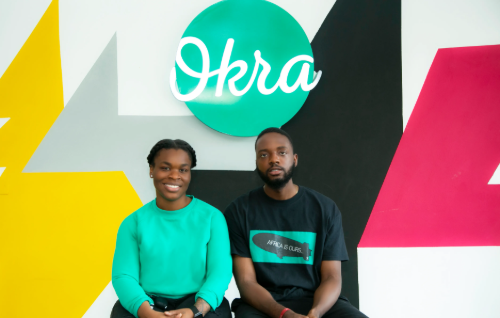Okra Co-Founder Fara Ashiru Jituboh Exits as Startup Shuts Down

TLDR
- Fara Ashiru Jituboh, co-founder and former CEO/CTO of Nigerian fintech Okra, has exited the company following its shutdown in May 2025
- The closure comes months after the launch of Nebula, Okra’s in-house naira-denominated cloud product, aimed at countering rising foreign cloud costs
- The company raised more than $16.5 million in total funding, with early backers including TLcom Capital and Susa Ventures, according to multiple reports
Fara Ashiru Jituboh, co-founder and former CEO/CTO of Nigerian fintech Okra, has exited the company following its shutdown in May 2025. According to her LinkedIn profile, she has taken a new role as Head of Engineering at UK-based startup Kernel.
Founded in 2019 with David Peterside, Okra built APIs that enable African users to connect their bank accounts to third-party apps, supporting fintech products across lending, insurance, and investment. The company raised more than $16.5 million in total funding, with early backers including TLcom Capital and Susa Ventures, according to multiple reports.
The closure comes months after the launch of Nebula, Okra’s in-house naira-denominated cloud product, aimed at countering rising foreign cloud costs. The move was a response to Nigeria’s FX pressures, which had made AWS and Azure unaffordable for local startups.
Peterside left in 2022, and no new CEO was named before the shutdown. Okra’s closure marks the end of one of Africa’s early pioneers in open finance.
Daba is Africa's leading investment platform for private and public markets. Download here
Key Takeaways
Okra’s shutdown reflects broader pressures on Africa’s fintech infrastructure startups, especially those in open finance. Despite high early promise, the model struggled with monetisation and growing infrastructure costs. Like many Nigerian startups, Okra faced rising operational expenses as naira depreciation increased the cost of cloud services. Its attempt to localise infrastructure with Nebula was innovative but may have come too late. The company’s early adoption of APIs and partnerships with major financial platforms, such as Bamboo and Branch, demonstrated market demand. However, the economics of B2B fintech in a volatile macro environment proved challenging. Okra’s story highlights a key lesson: building core infrastructure is capital-intensive, and African startups are not immune to the same scale and margin pressures that impact infrastructure companies globally. As founders increasingly explore naira-priced alternatives and self-hosting models, Okra’s experience could shape the next generation of fintech enablers.

Next Frontier
Stay up to date on major news and events in African markets. Delivered weekly.
Pulse54
UDeep-dives into what’s old and new in Africa’s investment landscape. Delivered twice monthly.
Events
Sign up to stay informed about our regular webinars, product launches, and exhibitions.




